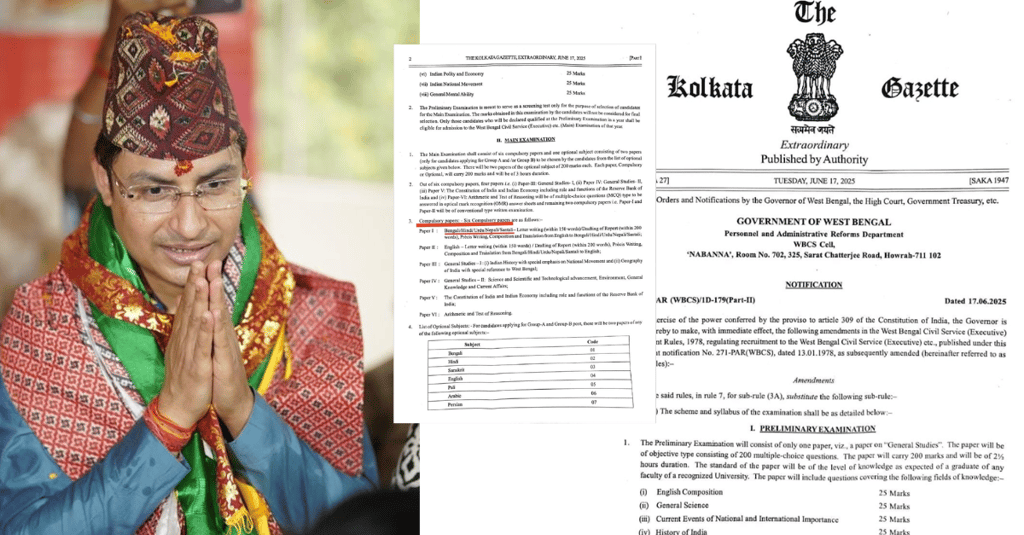Darjeeling MP Raju Bista secures victory as Nepali, Hindi, Santhali language rights restored in WBCS exams
The Darjeeling hills and surrounding regions have a rich mix of cultures and languages.
LOCAL


The Government of West Bengal has decided to bring back Nepali as an “Optional Subject” and restore Hindi and Santhali as “Compulsory Language” options in the West Bengal Civil Services (WBCS) 2025 examination. The decision is being widely hailed as a big step towards linguistic equality and fair representation in state services.
This long-pending correction comes after years of persistent efforts by Darjeeling MP Raju Bista, who has been raising this issue since 2021. Most recently, Bista wrote to West Bengal Chief Minister Mamata Banerjee on May 31, 2025, urging her to correct what he called a clear case of injustice against Gorkha, Adivasi, and Hindi-speaking communities. His appeal was supported by strong voices from student groups, universities, and civil society bodies. Among them were the Hills Student Association (HSA), North Bengal University and the All Bengal Adivasi Students’ Association (ABASA).
The exclusion of these languages in earlier notifications had triggered protests and concerns among students, especially in the Darjeeling hills, Terai, and Dooars regions. Many students who studied in Nepali, Santhali, or Hindi medium feared that they would be left behind in the competitive WBCS exam due to lack of equal opportunity in language preference. With this decision, those fears have now been addressed.
MP Raju Bista, in a press release, said, “This is not just a policy change. It is a victory for the constitutional rights of equality and non-discrimination. Articles 14, 15, and 16 of our Constitution guarantee that no one should be denied opportunities based on language or community. This decision respects those rights.”
He also thanked Chief Minister Mamata Banerjee and the West Bengal Government for responding positively to the appeals. “We must acknowledge the CM’s understanding and empathy in this matter. This is a step in the right direction, and we hope it leads to more inclusive policies in the future,” Bista said.
In recent years, there has been growing awareness about the need to preserve and promote regional languages in education and administration. The Darjeeling hills and surrounding regions have a rich mix of cultures and languages.
Bista said that this win was only possible because of united efforts by student groups, academics, and concerned citizens who kept pushing for justice. “It’s a reminder that change happens when we raise our voices together,” he said.
For the youth of Darjeeling, Terai and Dooars, this decision opens the door to state jobs without having to compromise on their language and identity.
